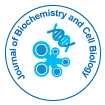Nosso grupo organiza mais de 3.000 Séries de conferências Eventos todos os anos nos EUA, Europa e outros países. Ásia com o apoio de mais 1.000 Sociedades e publica mais de 700 Acesso aberto Periódicos que contém mais de 50.000 personalidades eminentes, cientistas de renome como membros do conselho editorial.
Periódicos de acesso aberto ganhando mais leitores e citações
700 periódicos e 15 milhões de leitores Cada periódico está obtendo mais de 25.000 leitores
Indexado em
- Publons
- ICMJE
Links Úteis
Diários de acesso aberto
Compartilhe esta página
Abstrato
Unraveling the Complexity of Cancer: Insights from Molecular and Cellular Perspectives
Shisong R
Cancer a formidable adversary in the realm of human health, continues to pose significant challenges to our understanding and treatment capabilities. This abstract provides a concise overview of recent advancements in cancer biology, exploring the intricate molecular and cellular mechanisms that underlie the initiation, progression, and therapeutic responses in various cancer types. The journey into the heart of cancer biology begins with a detailed examination of oncogenesis, where genetic and epigenetic alterations drive normal cells toward a malignant fate. From the dysregulation of critical signaling pathways to the emerging role of non-coding RNAs, this abstract navigates the intricate landscape of molecular aberrations that characterize cancer development. Moreover, a focus on the tumor microenvironment reveals its pivotal role in shaping cancer phenotypes. Interactions between cancer cells and their surroundings, encompassing immune cells, stromal components, and vasculature, play a crucial role in tumor progression and response to therapy. The dynamic interplay between these components adds another layer of complexity to the understanding of cancer biology. Advancements in single-cell technologies have paved the way for unraveling heterogeneity within tumors, offering insights into the coexistence of diverse subpopulations with distinct molecular profiles. This newfound appreciation for intra-tumor heterogeneity challenges traditional cancer models and calls for personalized therapeutic approaches tailored to the unique genetic makeup of individual tumors. The abstract also delves into the evolving landscape of cancer therapy, highlighting the emergence of precision medicine and immunotherapy. Targeted therapies, exploiting specific molecular vulnerabilities, showcase promising outcomes, while immunotherapeutic strategies harness the power of the immune system to recognize and eliminate cancer cells. The challenges and opportunities in translating these innovations from bench to bedside are discussed, emphasizing the need for interdisciplinary collaboration and ongoing research efforts.
Diários por Assunto
- Agro e Aquicultura
- Alimentação e Nutrição
- Bioquímica
- Ciência da Computação
- Ciência de materiais
- Ciencias ambientais
- Ciências Clínicas
- Ciências Farmacêuticas
- Ciências gerais
- Ciências Médicas
- Ciências Sociais e Políticas
- Ciências veterinarias
- Economia e Contabilidade
- Enfermagem e cuidados de saúde
- Engenharia
- Engenheiro químico
- Física
- Genética e Biologia Molecular
- Geologia e Ciências da Terra
- Gestão de negócios
- Imunologia e Microbiologia
- Informática
- Matemática
- Química
Revistas clínicas e médicas
- Anestesiologia
- Assistência médica
- Biologia molecular
- Cardiologia
- Cirurgia
- Dermatologia
- Diabetes e Endocrinologia
- Doenças infecciosas
- Enfermagem
- Fisioterapia e Reabilitação
- Gastroenterologia
- Genética
- Hematologia
- Imunologia
- Medicamento
- Medicina Reprodutiva
- Microbiologia
- Nefrologia
- Neurologia
- Odontologia
- Oftalmologia
- Oncologia
- Ortopedia
- Pediatria
- Pesquisa Clinica
- Pneumologia
- Psiquiatria
- Toxicologia

 English
English  Spanish
Spanish  Chinese
Chinese  Russian
Russian  German
German  French
French  Japanese
Japanese  Hindi
Hindi